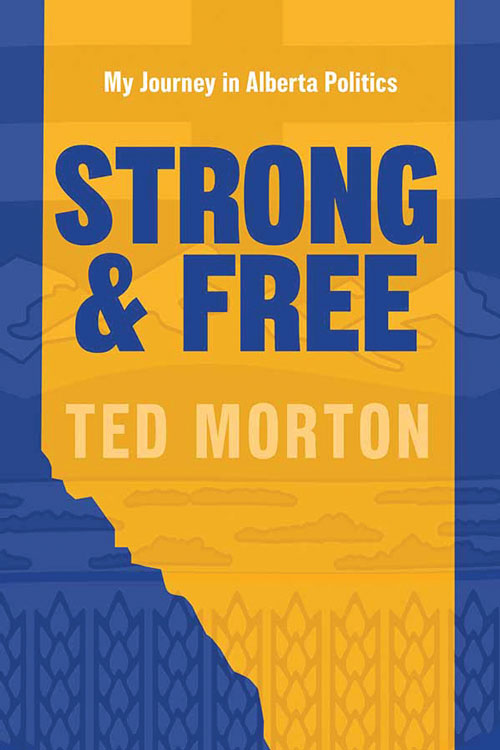There are few things less satisfying than a character study that reduces life’s rich pageant to ideological sniping. Political scientist and former politician Ted Morton’s new autobiography, unfortunately, is a case in point.
Morton describes Strong and Free as a chronicle “of my three decades in Alberta politics,” starting when he and his wife Bambi and their three children moved from the United States to Calgary in 1981 so Morton could teach in the department of political science at the University of Calgary. Along with Tom Flanagan, Rainer Knopff and Barry Cooper, Morton was a key figure in the “Calgary School,” a cadre of professors at the U of C who promoted hard-right social and economic conservative ideas. He ran as the Reform Party’s Senate candidate in 1997 and signed the “firewall letter” along with Stephen Harper in 2001, advocating for an Alberta police force and pension plan. In 2004 Morton won election as a Calgary-area MLA. He ran for the Progressive Conservative leadership in 2006 (losing to Ed Stelmach) but served variously as the minister of finance and Alberta’s energy minister in the PC government before losing his seat in 2012. In concluding chapters Morton gleefully tells readers that “reforms I had written about and campaigned for, but did not achieve, are now being implemented” under the current United Conservative Party government. He calls the path to these conservative ideas becoming Alberta government policy a “Long March.”
As a memoir from an influential insider within the conservative movement that has tilted ever more rightward over the last 40+ years, this could have been an insightful book. But it’s not. Throughout Strong and Free Morton remains behind his ideological wall, banging away at the usual targets. We know how many votes he earned to become a “senator-in-waiting,” but he barely mentions his personal motivations, the forces that shaped his character, or even his family.
The book is nearly devoid of introspection. Mainly we learn that Ted likes to win. In one scene, Ted the family values politician and self-described “sportsman” stands over the game he’s killed and offers a chilling grace: “Let us prey.”
This is a man so conservative that he advocated using the Charter’s notwithstanding clause to keep gay rights out of the Alberta Human Rights Act. He sponsored a private member’s bill to shield clergy from officiating same sex marriages—something that was never even a legitimate concern. What does any of this say about Morton’s own inner currents? All we get in this book is a replay of the Calgary School’s greatest hits. But we never learn why Morton, the American from Wyoming who chose Canada, thinks our institutions should look more like the United States.
Morton claims the infamous “firewall letter” as his legacy because Danielle Smith loyally wields the old weapons. But he has also argued in another recent volume that the issues near and dear to the heart of the prairie right are no closer to being addressed today than they were 40 years ago. So which is it? Is firebrand conservatism on the verge of victory, or is it all for naught? Extremism did indeed move from the margins to the mainstream. But I maintain the goal was never to convince the rest of the country to amend the constitution and create an elected senate. By the early 1990s it would have been clear to Morton the political scientist that major amendment was impossible. For Ted the emerging politician, however, failure and resentment were rocket fuel for a political career that fed on grievance and resentment.
Sixteen years ago, in March 2008, this magazine published a revealing portrait. Asked about the apparent contradictions in the Morton facade, Tom Flanagan helpfully suggested that his friend was playing a character in the “dramatic production… that we call politics.”
That’s about the size of it. The populist trifecta of God, guns and gays did the trick for awhile. But when Morton’s lust for the big chair conflicted with his Lone Ranger mask, he dropped the act and sided with power. If there’s more to the story, Morton won’t say.
Marc D. Froese is professor of political science and director of the International Studies Program at Burman University.
_______________________________________


